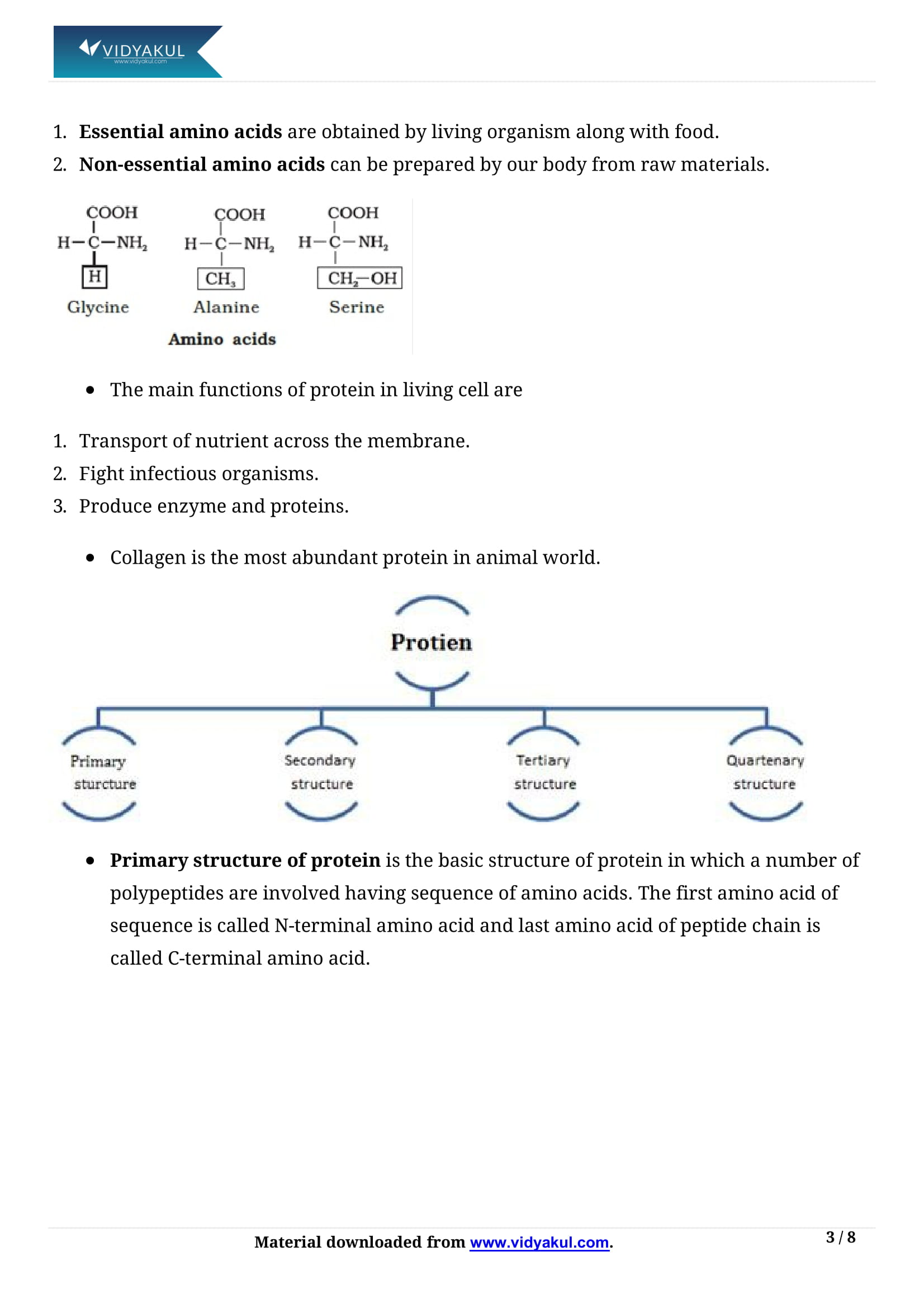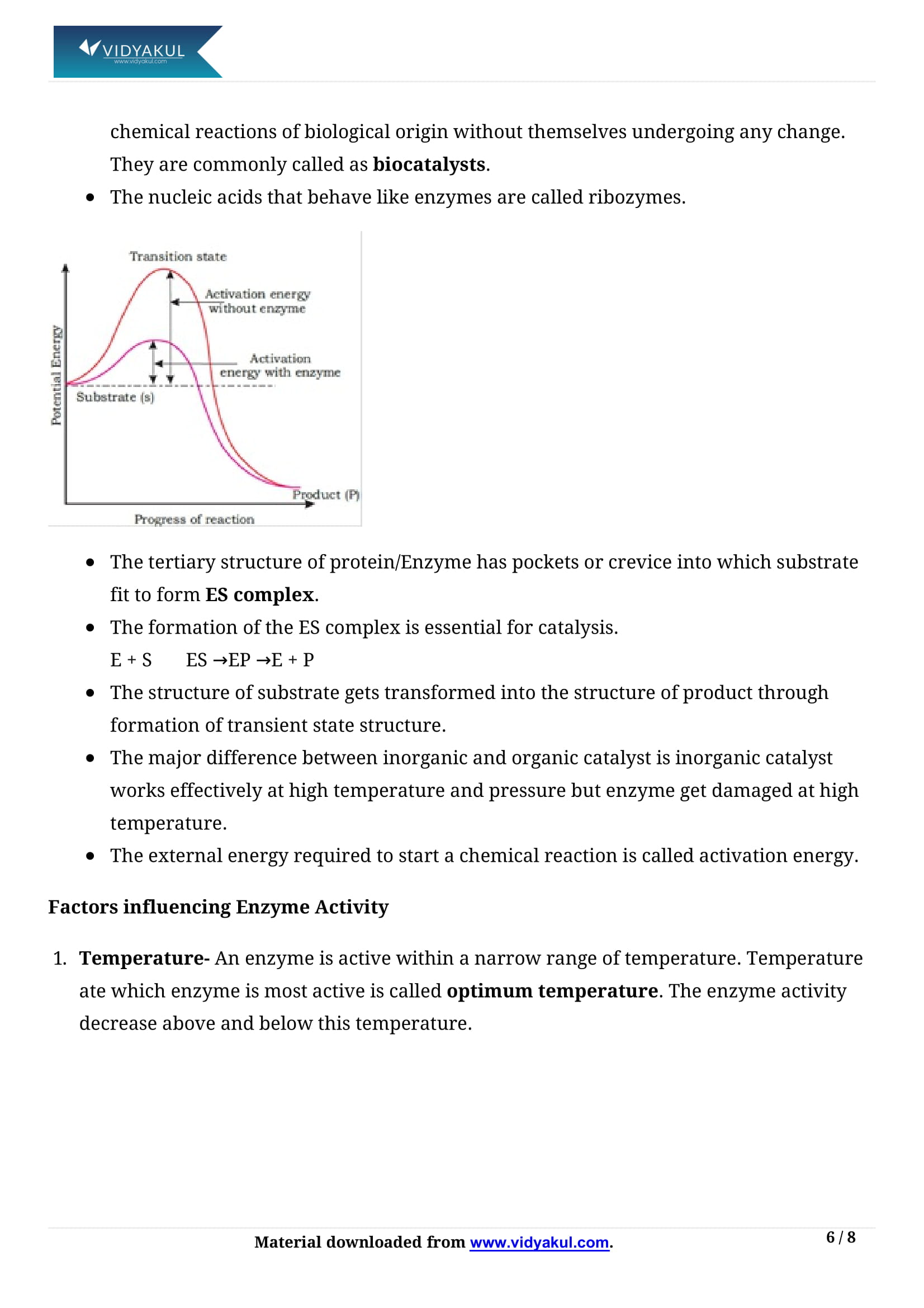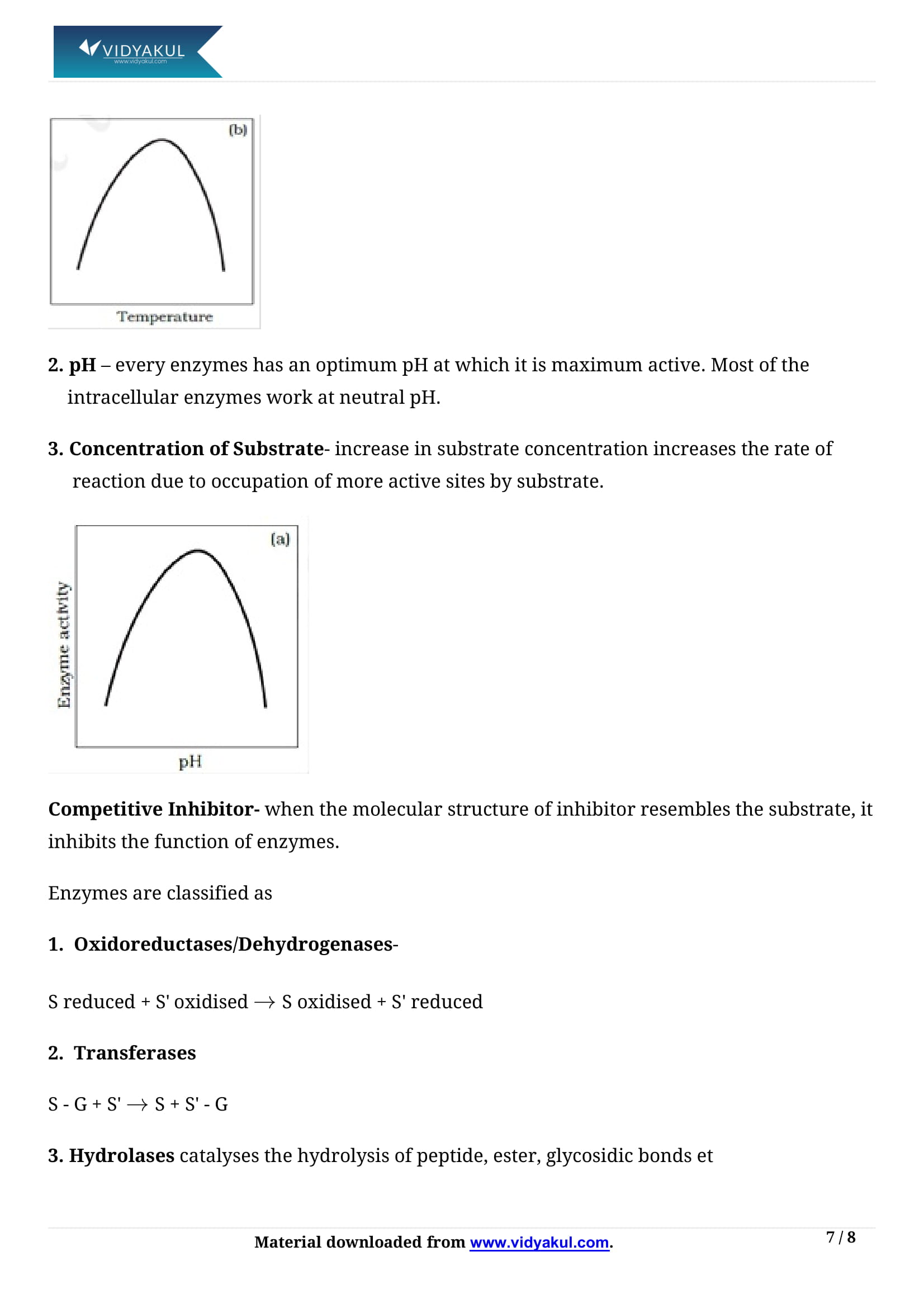Biomolecules Class 11 Notes

Chapter 9 Biomolecules
NCERT Class 9 Biology deals with the concepts of Biomolecules. Students can find the notes for Class 11 Biology Chapter 9 on Vidyakul. With the help of these notes, students can easily complete their assignments. The NCERT Class 11 Biology notes by Vidyakul are based on the latest syllabus by CBSE.
Vidyakul’s subject experts provide the CBSE Class 11 Biology NCERT notes. Students can use the NCERT Class 11 Biology notes on Vidyakul anytime online. Apart from NCERT notes, Vidyakul provides 200+ practice questions on Biomolecules for free. Visit Vidyakul to learn more.
CBSE CLASS 11 BIOLOGY CH-9
Points to Remember
While studying, the important points to remember from the chapter are as follows:
There are 21 types of amino acids and 5 types of nucleotides.
Thomas Huxley referred to protoplasm as the “physical basis of life” in 1868.
The term “cellular pool” refers to the assortment of different kinds of molecules found in a cell.
Proteins and lipids are important for humans.
There are three types of macromolecules.
Topics and Sub-topics
Students can refer to NCERT Class 11 Biology books by Vidyakul to finish their syllabus. Besides the books, students can also use Vidyakul’s NCERT notes to enhance their knowledge. The NCERT Class 11 notes will help students understand the concepts easily. Students can practice the free questions available on Vidyakul. By practicing them frequently, students get to stay ahead of others.
Furthermore, all the study materials are available for free on Vidyakul. Therefore, students can practice questions on Vidyakul and take the free mock tests. The topics included in Class 11 Biology Chapter 9 are as follows:
Frequently Asked Questions
Define cell theory?
The cell theory was proposed by two scientists – Theodor Schleider and Matthias Schwann in the year 1839. According to this theory:
A new cell exists from pre-existing cells.
All cells have the same basic chemical structure.
The cell is the structural and functional unit of all living things.
Hereditary information is passed from parent cell to child cell.
The fundamental biochemical reactions of life take place within cells.
All living organisms existing on the planet earth are composed of one or more cells.
Which cell organelle is found only in animal cells?
Cell organelles that are present exclusively in animal cells are Centrosomes.
What are the functions of the Plant Cells?
The major functions of the plant cell are
They are the building blocks of plants.
Cell walls provide shape to the cell and protect the inner cell organelles.
Stores food in the form of energy.
Helps in the process of photosynthesis, transpiration, and other biological [process.
Help in the transport of water and nutrients from the roots and leaves to different parts of the plants.
How many types of cells are there?
There are different types of cells and are differentiated mainly based on their structure, functions, their compositions, etc. The two main types of cells are- Prokaryotes and Eukaryotes. This differentiation is based on the presence and absence of a nucleus.
Practice Questions
Which is the largest single cell?
Mention the similarity and differences between mitochondria and chloroplasts?
What are nuclear pores? State their function.
Give the difference between the cell wall and cell membrane.
There are 21 types of amino acids and 5 types of nucleotides.
Thomas Huxley referred to protoplasm as the “physical basis of life” in 1868.
The term “cellular pool” refers to the assortment of different kinds of molecules found in a cell.
Proteins and lipids are important for humans.
There are three types of macromolecules.
Define cell theory?
A new cell exists from pre-existing cells.
All cells have the same basic chemical structure.
The cell is the structural and functional unit of all living things.
Hereditary information is passed from parent cell to child cell.
The fundamental biochemical reactions of life take place within cells.
All living organisms existing on the planet earth are composed of one or more cells.
Which cell organelle is found only in animal cells?
What are the functions of the Plant Cells?
They are the building blocks of plants.
Cell walls provide shape to the cell and protect the inner cell organelles.
Stores food in the form of energy.
Helps in the process of photosynthesis, transpiration, and other biological [process.
Help in the transport of water and nutrients from the roots and leaves to different parts of the plants.
How many types of cells are there?
Which is the largest single cell?
Mention the similarity and differences between mitochondria and chloroplasts?
What are nuclear pores? State their function.
Give the difference between the cell wall and cell membrane.
Learn more about the same in Biomolecules Class 11 Notes pdf.
Download this solution for FREE Download this PDF
Download Vidyakul App for more videos, PDF's and Free video lectures.











